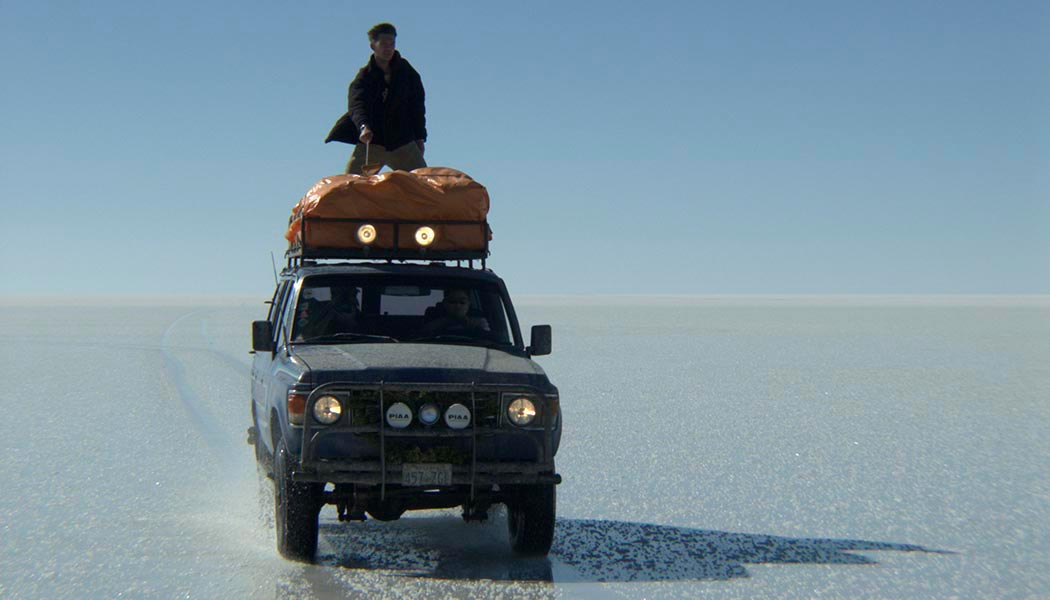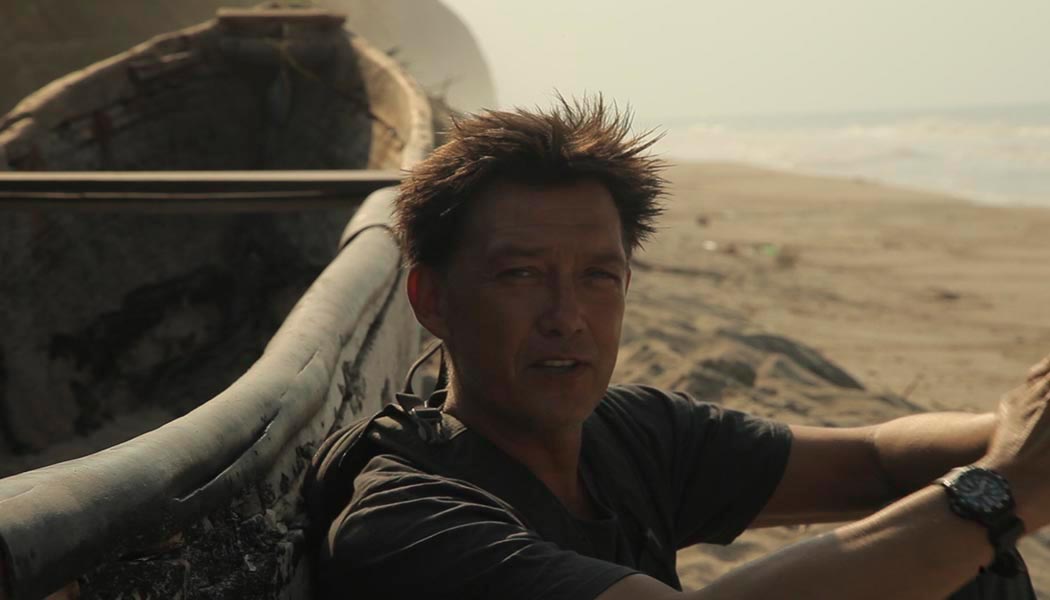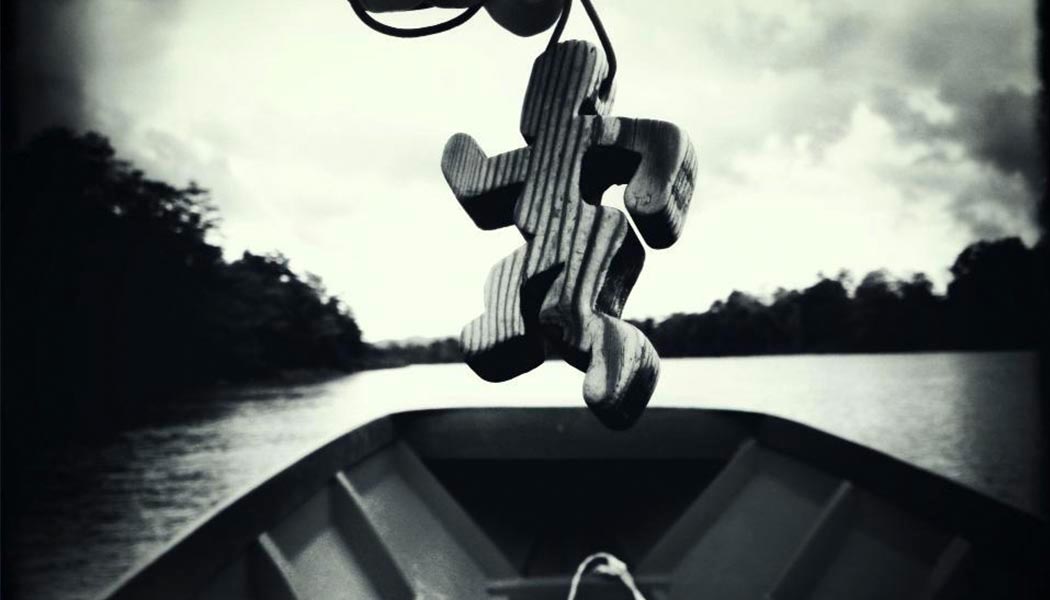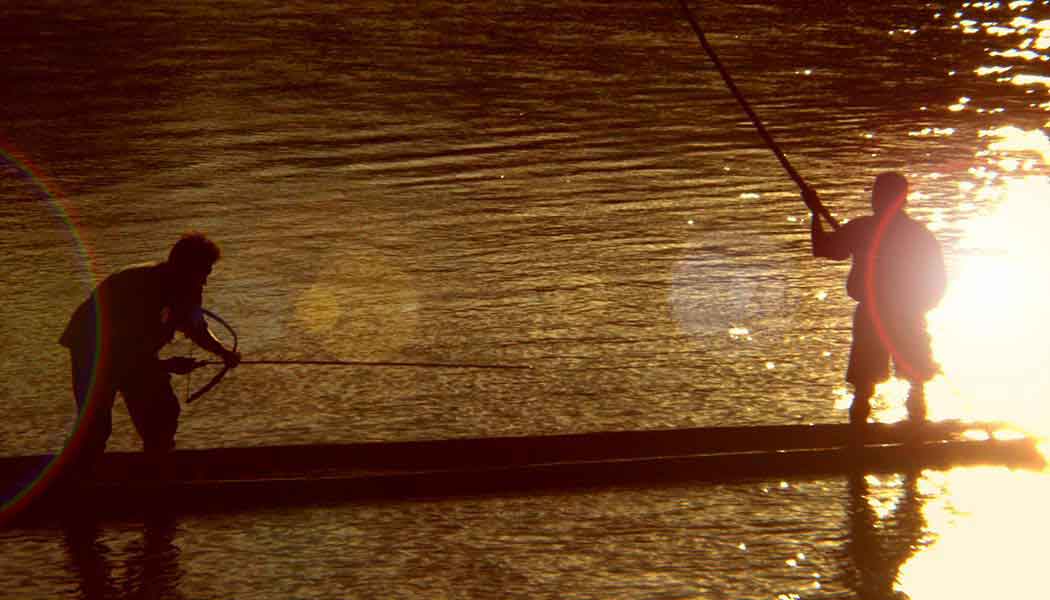Run and gun filmmaker Justin Hall talks to The Yak about his mission … let’s just say it … to save the world.
OK, Justin Hall … describe yourself in three words.
Let’s go with optimistic, principled and unconventional. If given a fourth, I’d add fallible…
We’ve seen you on the TV, haven’t we? But you’re not a traditional kind of journo, are you…
I often get called quirky. In the simplest sense, I run on instinct rather than rule books and follow my heart when confronted with a challenge. As a storyteller, it’s my nature to try and inspire the best in contributors and garner the most out of each encounter. In my experience, often the easiest way to achieve this is by going back to basics; whether meeting with a government official or hanging with gangsters, kicking back with gun-toting pirates or talking with tribal chiefs. We are all fundamentally just people and a smile and good intention goes a long way to breaking the ice in tough company.
How many countries have you visited in the last, let’s say, two years?
Being part of the Nat Geo Explorer team has been amazing. As correspondents, we feed in stories to the New York office with only the most dramatic and telling making the grade. It’s fast paced, and you get used to being thrown in at the deep end … but I guess that’s part of the skillset. So, these last years I have been busy dodging land mines in Laos, saving bears in Armenia and searching for lost cities in the jungles of Colombia. I’ve hung out with gorillas in the mist in the DRC and swapped stories with child warriors in the Congo … I’ve drifted across bubbling volcanic lakes in Rwanda, visited Jane Goodall’s chimpanzees in Tanzania while in search of the origins of spirituality. For one of my favorite NG stories entitled ‘Cocaine of the Sea’ I went undercover in the markets of Hong Kong. It was a hair-raising experience. Following the money led us to the Sea of Cortez in Mexico, where aboard the Sea Shepherd I joined the team as they hunted poachers with mil-spec drones and night vison. It’s been a trip; an intense learning curve and I feel profoundly fortunate to have been a part of it.
What’s the most dangerous experience you’ve ever had?
The earlier thrill-seeking version of me took a lot of unmeasured risks. I’ve been shot at by marauding Thai gangsters, held up with a Glock for a slice of pizza in New York; I’ve had a knife pulled on me in the Arab sector of the old city of Jerusalem, befriended factions of the Chinese Triads, the mobsters of London, the Mafia of Moscow, Thailand and New York; witnessed stabbings, shootings, riots and catastrophes; infiltrated a forgery ring in Cairo; narrowly avoided being blown up by terrorists in Israel, Sri Lanka and again in Guatemala. I’ve been attacked by rabid mountain dogs in the foothills of the Himalayas; chased by a rhino in India’s forest of Thacadi; and thrown down a waterfall by howler monkeys on the coast of Costa Rica. I’ve survived a near-death experience in a jungle river cave close to warring guerrillas on the border of Belize, done barrel rolls in a rusting Soviet jetfighter as we punched through the clouds. I’ve ridden with rebels in Libya and pirates in Somalia. In the Amazon, in an early effort to get closer to nature, I strapped myself to the wing of a biplane and buzzed the jungle canopy. I’ve even suited up in a James Bond jet-pack and headed to the launch pad … but for all these things, many of them thrill-seeking, by far the most tangible fear I have felt in life was recently in the company of the child warriors of the Congo’s Mia Mia. These are kids born of the darkest kind of trauma, banded together around the gun, living a feral existence on the border of the now famous Virunga National Park. With nothing to lose, the cocktail of adolescents, alcohol and AK47’s proved highly volatile. There is a clip on Nat Geo’s Explorer website for any that wish to see.
Where does this lust for adventure come from?
As a kid my mum gave me a book called Runaway Ralph! Ralph was a mouse who lived under the stairs and, like most mice, dreamed of cheese and not much else. Life changes for Ralph when he finds a toy motorbike and heads off into the unknown. For sure, Ralph’s spirit of adventure and longing to go elsewhere, see more, be more, has played a part. I guess, as a result, I set off early in life; armed with a smile, good intention and not much else, I spent much of my teens and early twenties jumping from place to place, hunting experience. At 15, I spent a year in India, trekked across the desert on a camel train, explored Sri Lanka and Nepal. From hauling sacks of coconuts on the docks of Israel’s Taba port, aged 15, to running clubs and restaurants in New York … I sucked up life, acted on instinct and moved forward. A real turning point came when I hit 30 and was living in Los Angeles. At a dinner party, fortune had me bump into a character called Jean-Pierre Detulluex, a safari suit-wearing kind of guy who held court around the table and told stories of remote tribes and his efforts to save the rainforest. It was a genuine eureka moment … so I harassed him to give me a job. Which he did, and through him I developed a passion for ethnography, learnt the process of film making and started to plan my own style of journeys.
What’s Runningman all about? You wear the wooden image around your neck.
It’s a talisman of sorts that has hung around my neck for the past 25 years. I’ve been through hell and high water with this little carved wooden character … in Zambia, while rafting on the Zambezi, he was torn from my neck as our boat overturned in the rapids. Amazingly he survived a solo swim down river past angry hippos only to be found later on the shoreline as we made camp! Always facing towards my heart. In the simplest sense it is a constant reminder that we should take active steps in the direction our hearts would have us go. I named my first production company after this ethos. So, he has led me as much as I have carried him. One thing’s for certain, we are a team.
You’re a Fellow of the UK’s Royal Geographical Society, which has such alumni as Charles Darwin and David Livingstone. How did that come about and what does it mean to you?
I’ve been a Fellow for almost 20 years now. Wonderfully, I was nominated for my earlier works with Amazonian tribes. Simply put, the RGS is an extraordinary organization that for the last 180 years has been a driving force of global exploration, nurturing intrepid spirit by supporting those brave, bold or foolish enough to risk their lives and push the boundaries in an effort to communicate a better understanding of the world around us. To be recognized as a part of this endeavour is without doubt my proudest achievement. To me, the challenge of exploration in the 21st Century is an urgent one … it’s no longer about planting flags or egocentric feats of endurance. It’s about exploring the issues of a world well known, about examining the relationship between Man and Nature, cultures and commerce, land and its governance, about the science of change and the quest for solutions.
Your Nat Geo bio says you specialize in hi-tech digital storytelling technologies. Explain please!
I’ve always loved tech and in a sense been ahead of the curve, looking for ways to use new tools to tell stories. Back in 2000, exploring this idea, I led a three-month expedition through the tribal territories of eight amazon forest communities. It was my first major expedition and although the objectives where quite simple – i.e. review the forces affecting habitat, resource, nature and people – the idea of using the web to communicate each step of the journey in real-time was somewhat pioneering. Arming myself with almost 500 kilos of hi-tech kit including military laptops, solar panels and satellite communicators, we set about offering the remote tribes of the interior a digital platform from which to voice their hopes and fears. Via satellite, we relayed their stories directly from source, initiating discussions between like-minded groups and NGOs, subtly introducing the idea of digitally mapping the narrative, law and land rights claims of the indigenous and tribal communities we met. The results were encouraging. With the web still in its infancy, 1.4 million people joined us online. Collectively, school kids, scholars and a new breed of armchair traveler spent thousands of hours viewing our work and, in some cases, getting involved.
There are exploited and under siege peoples and species all over the planet, with increasing population pressures that don’t look like helping with any of the issues we see in the environment or communities. Doesn’t it all just get you down?
Sure, I see smoke on the horizon but to me it’s a call to action rather than a sign of impending doom. I’ve been lucky in doing what I do to have come alongside some extraordinary characters involved in projects set against the greatest of odds; whether dodging bullets to save lives or railing against injustice, standing alone in defense of nature or tinkering with cells to find a way … it turns out that having hope is by far the most important mind set. It is a defining quality that enables the best of us to push past the naysayers and fear of failure to prove by example. As history has so often proved, we are capable of much more than we might at times imagine … and that’s how I choose to see the future. The immediacy of our comms and the power that rests in each of our hands is hard to overstate. Striking but true, a standard iPhone runs well over 120,000,000 times faster than the computer that guided the Apollo spacecraft to the Moon! If brave men, women and clever scientists can aim for the stars and achieve the seemingly impossible with a fraction of the computational power we all have to hand, then I’m certain we can do more than take selfies and click flip and swipe our way through the day.
You’ve visited many remote tribes over the years. Are there universal traits that you notice about all people in their natural state?
I’m not one to paint idyllic pictures of tribal, indigenous or forest peoples being ‘at one with nature’ as, in reality, most suffer complex forces bearing down on them. However, as anyone who has wandered alone through a forest, looked out from a mountaintop or stared in silence at a sunset, will likely have felt, there is something undeniably powerful, humbling and potent about being close to nature. It seems the more reliant on it you are, the stronger these feelings become. When you scale down from complex mega cities of millions to chiefdoms and tribal settlements of just a few hundred, you naturally find an intensified sense of community. Sure, they suffer the same soap opera of petty jealousies, varied attitudes and actions, but underpinning it all is a deepened sense of place and common purpose … having an intimate understanding that your existence is bound to and reliant on nature forges a reality that, for the most, we in cities dismiss as redundant. Namely, that we are all in it together, partners with nature, governed by it, reliant on it and should work collectively at all costs to ensure its continued wellbeing. Again, to me this is something that is inherently obvious to those who live close to nature.
Your higher power has given you three wishes to change our future, what are they?
Ok, let’s start with an instantaneous global epiphany! A profound realization by people and governance that priority should be placed on funding science that addresses primary environmental issues … as a starting point climate, food, water, the defense and perpetuation of cultural and environmental diversity and threatened enclaves … broad stroke, of course, and it isn’t just science. Obviously, it’s attitude and individual action that need to change. However, I reason that applied minds can and have achieved the seemingly impossible before … given the urgency and implications, I’d first wave my wand at this one. Next up … universal education and healthcare! Given that nearly 70 million children of primary education age are not in school and nearly 800 million adults around the world remain illiterate, it seems obvious that young minds, all minds, need nurturing and would benefit immeasurably from the passage of lessons learnt and higher reasoning. Knowledge is power, for certain, but in the simplest sense it also affords us a seat at the table, allows us to understand and actively participate in the decision-making process that governs our lives. This is never more apparent nor more important than for developing nations and its peoples who, once acknowledged, heard and allowed to speak on their own behalf, can exercise their right to self-determination re healthcare, redressing the balance and reducing suffering where possible … it’s a no brainer. Less worthy, and admittedly a bit selfish perhaps, my last wish would be to bring to life some of the expeditions and projects and meet the like-minded characters that will be needed to make them happen.











































